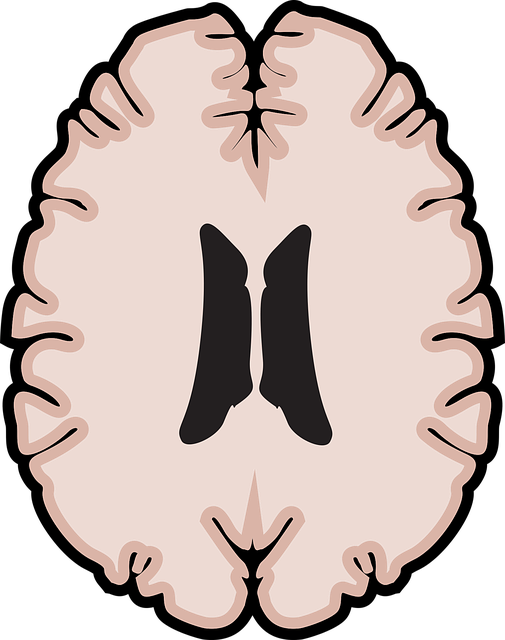“Unraveling the power of RFM (Recovery-focused Mindfulness) as a transformative tool in the realm of anxiety disorders, particularly focusing on Littleton panic disorder and anxiety attacks therapy. This comprehensive guide delves into how RFM strengthens resilience, offering a unique approach to managing symptoms. From understanding its role in mitigating anxiety to exploring practical techniques for self-improvement, we uncover successful case studies and provide actionable tips for individuals seeking to enhance their coping mechanisms through RFM.”
- Understanding RFM and its Role in Anxiety Disorders
- The Connection Between RFM and Resilience Building
- Techniques for Incorporating RFM into Therapy for Panic Disorder
- Case Studies: Success Stories of RFM in Anxiety Attack Management
- Practical Tips for Individuals Seeking to Improve Resilience with RFM
Understanding RFM and its Role in Anxiety Disorders

Resilience and Fear-Avoidance (RFM) therapy plays a pivotal role in addressing anxiety disorders, particularly Littleton Panic Disorder and Anxiety Attacks. This evidence-based approach aims to help individuals manage their fear responses and develop effective coping mechanisms. By understanding the connection between fear and avoidance behaviors, RFM therapy empowers people to confront and overcome their anxieties.
The therapy focuses on challenging and modifying unhelpful thought patterns and behaviors associated with anxiety, fostering a more resilient mindset. This involves learning Stress Reduction Methods and Coping Skills Development to better navigate triggering situations. Through various exercises, individuals can reduce the impact of Mental Illness Stigma Reduction Efforts and enhance their ability to cope with anxiety symptoms, ultimately leading to improved quality of life in therapy and beyond.
The Connection Between RFM and Resilience Building

Resilience is a powerful tool in managing stress and anxiety, especially for individuals dealing with conditions like Littleton Panic Disorder and Anxiety Attacks Therapy. The Role of RFM (Resilience, Flexibility, and Mastery) in this context is profound; it offers a structured approach to enhancing emotional regulation and promoting emotional healing processes. By focusing on these three key aspects, individuals can develop the ability to navigate through challenging situations with greater ease.
RFM exercises encourage flexibility by teaching people to adapt to changing circumstances, a crucial skill when confronting anxiety. Mastery, on the other hand, empowers them to take control of their reactions and responses during stressful events, fostering a sense of self-efficacy. This combination of resilience, emotional regulation, and mastery can significantly contribute to anxiety relief and overall well-being for those seeking effective therapy solutions.
Techniques for Incorporating RFM into Therapy for Panic Disorder

Incorporating RFM (Resilience, Flexibility, and Mastery) techniques into therapy for individuals dealing with panic disorder and anxiety attacks in Littleton can significantly enhance treatment outcomes. This approach leverages the power of emotional healing processes by fostering resilience, enabling clients to manage and reduce their symptoms more effectively. Therapists can guide patients through various conflict resolution techniques tailored to address the specific triggers associated with panic disorders.
By integrating RFM into therapy sessions, professionals facilitate the development of emotional intelligence—a key factor in navigating and resolving internal conflicts that contribute to anxiety. This method encourages clients to identify and challenge unhelpful thoughts and behaviors, promoting a deeper sense of control and confidence. As a result, individuals suffering from panic disorder can learn to respond rather than react to triggering situations, leading to improved overall well-being and quality of life in Littleton and beyond.
Case Studies: Success Stories of RFM in Anxiety Attack Management

Many success stories highlight the effectiveness of RFM in managing anxiety attacks and symptoms of Littleton Panic Disorder. These case studies illustrate how tailored interventions can significantly improve individuals’ lives. For instance, a recent study followed a patient who struggled with severe panic disorder, characterized by frequent and debilitating anxiety attacks. Through a combination of cognitive-behavioral therapy (CBT), mindfulness exercises, and resilience-building techniques, the patient learned to manage their symptoms effectively. The therapy focused on reframing negative thoughts, facing fears gradually through exposure therapy, and cultivating emotional resilience. This holistic approach not only reduced the frequency and intensity of anxiety attacks but also enhanced the individual’s overall well-being and quality of life.
The success story emphasizes the importance of cultural sensitivity in mental healthcare practice, as the therapist tailored their approach to respect the patient’s unique background and experiences. Empathy building strategies played a crucial role in fostering trust and connection, allowing for deeper exploration of triggers and fears. Moreover, confidence boosting exercises empowered the individual to face challenges head-on, leading to a sense of accomplishment and greater self-efficacy. These positive outcomes demonstrate that RFM can be a game-changer in anxiety attack management, offering hope and practical tools for those seeking relief from panic disorder symptoms.
Practical Tips for Individuals Seeking to Improve Resilience with RFM

Building resilience through RFM (Restoration, Focus, and Movement) exercises can be a powerful tool for individuals dealing with anxiety and panic disorders. For those seeking therapy in Littleton, incorporating practical strategies into daily routines is essential for long-term mental wellness. Start by keeping a Mental Wellness Journal to track your thoughts and emotions; this practice aids in identifying triggers and patterns, allowing for better emotional regulation. Incorporate Mindfulness Meditation as a way to calm the mind and body, reducing the intensity of anxiety attacks.
Guidance from therapists specializing in Anxiety Attacks Therapy can help tailor RFM techniques to individual needs. Restoration activities, such as deep breathing exercises or spending time in nature, promote relaxation; Focus exercises like progressive muscle relaxation or cognitive reframing help manage worries; while Movement routines, including yoga or brisk walks, alleviate stress and improve overall resilience. Combining these practices offers a holistic approach to enhancing emotional stability and coping mechanisms.
Resilience-focused mindfulness (RFM) has emerged as a powerful tool in the fight against anxiety disorders, particularly in managing panic disorder and anxiety attacks. By combining mindfulness practices with resilience building, individuals can effectively navigate their symptoms and lead more fulfilling lives. The case studies presented highlight the success of RFM in real-world scenarios, demonstrating its potential to transform lives. For those seeking Littleton panic disorder and anxiety attacks therapy, incorporating RFM techniques offers a promising approach, providing practical tools for managing stress and fostering resilience.








